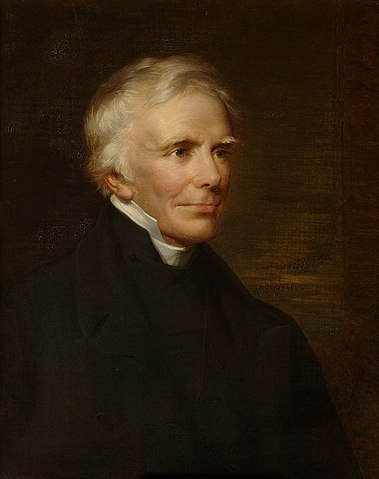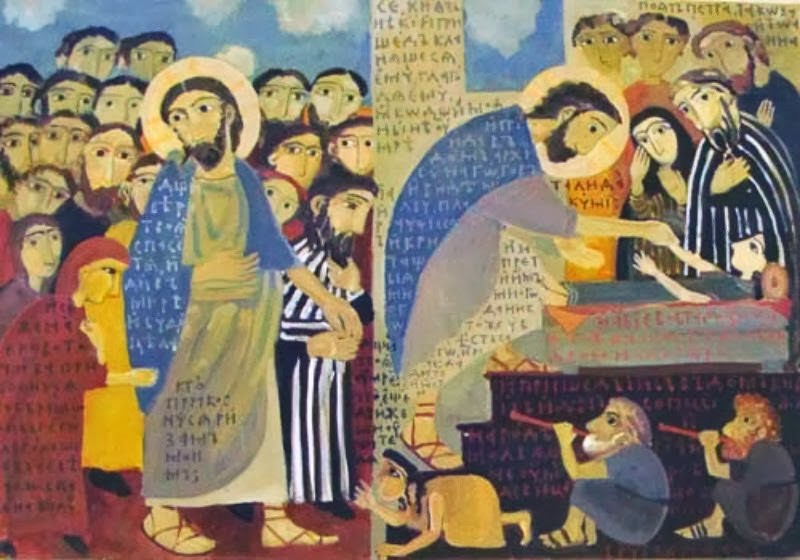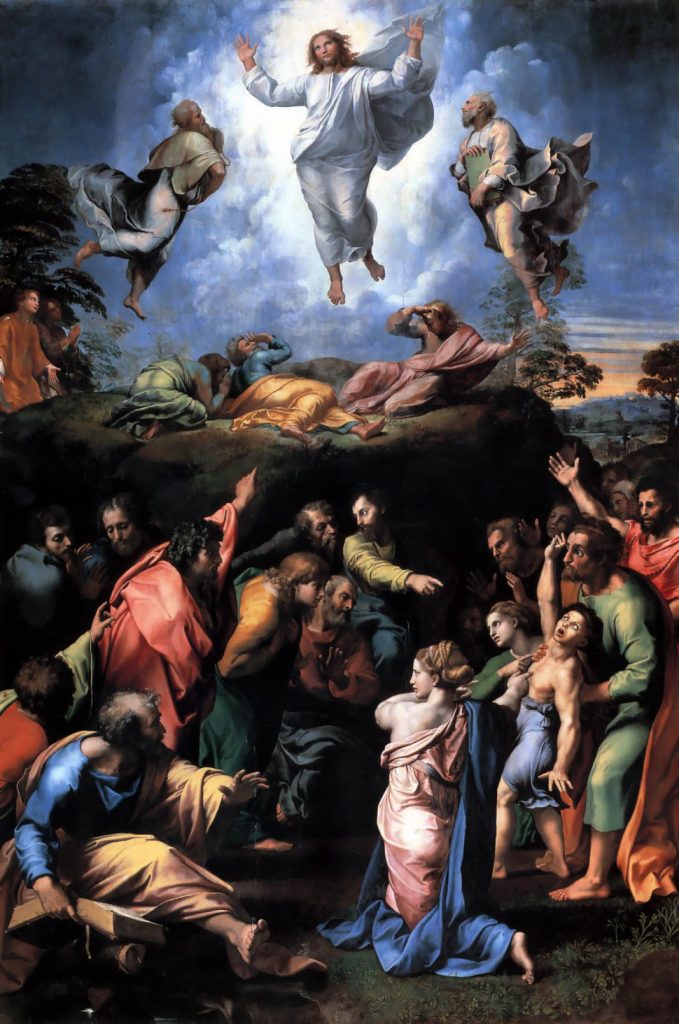 Yesterday, July 14, was the 185th anniversary of the preaching a sermon which is said to have been the beginning of the Catholic revival in the Church of England. The sermon was preached at St. Mary’s Church Oxford by the Rev. John Keble, Provost of Oriel College and Professor of Poetry at Oxford. The sermon marked the opening of the Assize Court, the summer term of the English High Court of Justice. The Assize sermon normally would have addressed matters of law and religion, but in the summer of 1833 the Parliament of the United Kingdom was debating whether to abolish (or in the language of the time “suppress”) some dioceses of the Anglican Church of Ireland which, at the time, was united with the Church of England. It was an entirely financial issue in the eyes of Parliament, but Keble and several of his friends believed this to be an encroachment of the secular establishment upon the religious and an altogether wrong thing, and so it was this portending legislation that Keble addressed in his homily, which he titled National Apostasy. He began with these words:
Yesterday, July 14, was the 185th anniversary of the preaching a sermon which is said to have been the beginning of the Catholic revival in the Church of England. The sermon was preached at St. Mary’s Church Oxford by the Rev. John Keble, Provost of Oriel College and Professor of Poetry at Oxford. The sermon marked the opening of the Assize Court, the summer term of the English High Court of Justice. The Assize sermon normally would have addressed matters of law and religion, but in the summer of 1833 the Parliament of the United Kingdom was debating whether to abolish (or in the language of the time “suppress”) some dioceses of the Anglican Church of Ireland which, at the time, was united with the Church of England. It was an entirely financial issue in the eyes of Parliament, but Keble and several of his friends believed this to be an encroachment of the secular establishment upon the religious and an altogether wrong thing, and so it was this portending legislation that Keble addressed in his homily, which he titled National Apostasy. He began with these words:
Category: Ordinary Time (Page 6 of 8)
![]() In today’s gospel lesson from the sixth chapter of Mark, Jesus has come home to Nazareth immediately after last week’s two stories of healing. Apparently he is there for at least a few days and when the Sabbath comes he does as he has done elsewhere: he goes to the synagogue. In Luke’s version of this story, Jesus is given a scroll from the prophet Isaiah and reads from it:
In today’s gospel lesson from the sixth chapter of Mark, Jesus has come home to Nazareth immediately after last week’s two stories of healing. Apparently he is there for at least a few days and when the Sabbath comes he does as he has done elsewhere: he goes to the synagogue. In Luke’s version of this story, Jesus is given a scroll from the prophet Isaiah and reads from it:
“The Spirit of the Lord is upon me,
because he has anointed me
to bring good news to the poor.
He has sent me to proclaim release to the captives
and recovery of sight to the blind,
to let the oppressed go free,
to proclaim the year of the Lord’s favor.” [1]
And goes on to say, “Today this scripture has been fulfilled in your hearing.” [2]
 It had gone on so long she couldn’t remember a time that wasn’t like this. She lived in constant fear. She wasn’t just cranky and out-of-sorts; she was terrified. Her life wasn’t just messy and disordered; it was perilous, precarious, seriously even savagely so. It was physically and spiritually draining, like being whipped every day.
It had gone on so long she couldn’t remember a time that wasn’t like this. She lived in constant fear. She wasn’t just cranky and out-of-sorts; she was terrified. Her life wasn’t just messy and disordered; it was perilous, precarious, seriously even savagely so. It was physically and spiritually draining, like being whipped every day.
Many in her situation might have given up, given in, curled up, and died. But not her. She was determined to stay alive. She was, after all, a daughter of Eve, created by God to join her husband as partners with God in conceiving, bearing, and giving birth to other human beings. She had had those children and now she had to look after them, to raise them, to ensure their survival.
But . . . she was going to die. She was convinced of that. If she continued to live in those circumstances she would die. There is simply no doubt about it.
 Our Old Testament lesson this morning is a very small bit of the Book of Job, that really sort odd bit of Biblical literature that tells the story of a wager between God and Satan. Some scholars believe that it may find its origins in an earlier Babylonian work known as the Poem of the Righteous Sufferer, that the Jews in Exile became familiar with the older Babylonian story and adapted it to their own theology.
Our Old Testament lesson this morning is a very small bit of the Book of Job, that really sort odd bit of Biblical literature that tells the story of a wager between God and Satan. Some scholars believe that it may find its origins in an earlier Babylonian work known as the Poem of the Righteous Sufferer, that the Jews in Exile became familiar with the older Babylonian story and adapted it to their own theology.
Job begins with a scene in the heavenly court where God is in conversation with character called, in Hebrew, ha-satan which is translated into English as Satan. However, this is not the Devil of later Christian mythology, the ruler of Hell portrayed by Milton or Dante or even Walt Disney (in the Night on Bald Mountain sequence in the movie Fantasia). Rather, ha-satan is a sort of heavenly district attorney or prosecutor who goes “to and fro on the earth, and … walking up and down on it,”[1] scoping out sin and iniquity and bringing it to God’s attention for judgment.
 Our kids this week have been “Shipwrecked,” but they’ve also been “rescued by Jesus.”[1] They’ve been learning the truth of that promise emblazoned on neon crosses at innumerable inner-city rescue missions in nearly every English-speaking country in the world, “Jesus saves,” through the metaphor of being lost at sea and washed up on a deserted island. That’s something that happened to St. Paul at least three if not four times![2]
Our kids this week have been “Shipwrecked,” but they’ve also been “rescued by Jesus.”[1] They’ve been learning the truth of that promise emblazoned on neon crosses at innumerable inner-city rescue missions in nearly every English-speaking country in the world, “Jesus saves,” through the metaphor of being lost at sea and washed up on a deserted island. That’s something that happened to St. Paul at least three if not four times![2]
But, unfortunately, St. Paul’s experiences at sea are not in the lectionary this week. Our readings from the bible have nothing to do with ships or the ocean or being lost or getting rescued and aren’t really easy to tie to what the kids have been doing with all these shipwreck decorations in the church. Instead of shipwrecks, the readings this week give us trees. Ezekiel reminds us of one of God’s metaphors for Israel, the noble cedar planted on a mountaintop spreading its branches to provide homes for the birds and winged creatures of every kind (which represent all the nations of the world), producing mighty boughs and the plenteous fruit of righteousness and justice.[3]
 For recreational reading these days, I’m into a novel entitled Winter of the Gods.[1] The premise is that the ancient gods of Greece are still with us, immortal but relatively powerless beings blending into the human world around them. The story is set in current-day New York City where the goddess Artemis, mistress of the hunt and twin sister of Apollo, lives and works as a private detective. As the novel opens, Selene (as Artemis is called) and her partner Theo, a professor of classics at Columbia University, are consulting with the NYPD about a bizarre murder. What they know, and the police don’t, is that the victim is Hades, god of the underworld.
For recreational reading these days, I’m into a novel entitled Winter of the Gods.[1] The premise is that the ancient gods of Greece are still with us, immortal but relatively powerless beings blending into the human world around them. The story is set in current-day New York City where the goddess Artemis, mistress of the hunt and twin sister of Apollo, lives and works as a private detective. As the novel opens, Selene (as Artemis is called) and her partner Theo, a professor of classics at Columbia University, are consulting with the NYPD about a bizarre murder. What they know, and the police don’t, is that the victim is Hades, god of the underworld.
This is the first death of an immortal god in millennia and the rest of the gods are thrown into turmoil. They have to join forces and work together to solve the murder before another one of them killed. This is difficult because if the Greek gods are nothing else they are a dysfunctional family. After all, they are all descended from Kronos, the divine son of Uranus, the sky, and Gaia, the earth. Kronos overthrew his parents and ruled during the mythological Golden Age. He married his sister Rhea and fathered several children, but prevented strife by eating then as soon as they were born. Eventually, Rhea grew tired of this and tricked Kronos into not devouring Zeus, who overthrew Kronos and cut open his father’s belly and freed his brothers and sisters.[2]
As a theologian and a preacher, I am very glad I don’t have that mythology to deal with on a weekly basis! Finding something good to preach based on the stories of that dysfunctional family would be a task I don’t think I’m up to.
 The theme for today’s lessons is clear . . . we are almost “hit upside head” with the concept of Sabbath. Our reading from Deuteronomy is the law establishing the mandatory day of rest:
The theme for today’s lessons is clear . . . we are almost “hit upside head” with the concept of Sabbath. Our reading from Deuteronomy is the law establishing the mandatory day of rest:
Observe the sabbath day and keep it holy, as the Lord your God commanded you. Six days you shall labor and do all your work. But the seventh day is a sabbath to the Lord your God; you shall not do any work.[1]
Our Gospel lesson relates two of Mark’s stories of Jesus’ conflict with the Pharisees about Sabbath observance: first, a probably made-up tale about the disciples plucking wheat,[2] and second, a probably true story about Jesus healing a man with a crippled hand in the context of a synagogue Sabbath observance.[3]
So what is Sabbath?
 Preachers often focus on Peter’s unthinking outburst offering to make three dwellings for Jesus, Elijah, and Moses on the mountain of the Transfiguration. Such booths would concretize his all-to-human desire to experience continually the radiance of God. Life, however, is not like that; it’s not all mountaintop highs. Life is full of ups and downs, both high mountaintops and low valleys.
Preachers often focus on Peter’s unthinking outburst offering to make three dwellings for Jesus, Elijah, and Moses on the mountain of the Transfiguration. Such booths would concretize his all-to-human desire to experience continually the radiance of God. Life, however, is not like that; it’s not all mountaintop highs. Life is full of ups and downs, both high mountaintops and low valleys.
My favorite artistic depiction of the Transfiguration is that by the High Renaissance painter Raphael. The top of Raphael’s painting portrays the glory and radiance described by the Evangelists Mark, Matthew, and Luke on the mountaintop, while the bottom shows what’s happening down below, what our lectionary reading leaves out. If we read further in Mark’s Gospel we find (as Paul Harvey might have said) the rest of the story:

Listen to the word that God has spoken;
Listen to the One who is close at hand;
Listen to the voice that began creation;
Listen even if you don’t understand.[1]
At the winter convocation this weekend our music keynoter, Ana Hernandez, taught us those words as a tract to chant before the reading of the Gospel. As we chanted them, I could not help but remember the first words of our lesson from the prophet Isaiah this morning, the pleading questions:
Have you not known? Have you not heard?
Has it not been told you from the beginning?
Have you not understood from the foundations of the earth?[2]
It is easy to read those questions, asked (says the Prophet) by God of God’s people, in what I call “the voice of parental frustration.” All of us who are parents have used that voice; all of us who are children have heard that voice. The people of God have heard that voice for centuries; it is the voice of what G.K. Chesterton called “the furious love of God.”[3] It is the voice of what the often-maligned conservative Christian author Eric Metaxas once called “a love that pursues even when the pursued is hurling insults at the pursuer.”[4] I suspect that a lot of parents have known that feeling, the feeling of being insulted by the one we love unconditionally.
 “The Lord your God will raise up for you a prophet like me from among your own people; you shall heed such a prophet.”[1] So said Moses in his farewell address to the Hebrews, to those who were about to enter the Promised Land and begin to become the nation of Israel. As that nation grew and developed it was ruled by tribal leaders and “judges,” by military leaders and priests, by kings (who were occasionally themselves ruled by queens), some of whom were mostly good and others of whom were mostly not-so-good. Throughout all that time, God raised upon not merely “a prophet,” but many prophets: Samuel, Ezekiel, Elijah, Elisha, Isaiah, Jeremiah, Micah, Hosea, Amos, and many, many others.
“The Lord your God will raise up for you a prophet like me from among your own people; you shall heed such a prophet.”[1] So said Moses in his farewell address to the Hebrews, to those who were about to enter the Promised Land and begin to become the nation of Israel. As that nation grew and developed it was ruled by tribal leaders and “judges,” by military leaders and priests, by kings (who were occasionally themselves ruled by queens), some of whom were mostly good and others of whom were mostly not-so-good. Throughout all that time, God raised upon not merely “a prophet,” but many prophets: Samuel, Ezekiel, Elijah, Elisha, Isaiah, Jeremiah, Micah, Hosea, Amos, and many, many others.
And there were others who claimed to be prophets but turned out to be either false prophets or prophets of other gods. These were the ones of whom God decreed through Moses, “Any prophet who speaks in the name of other gods, or who presumes to speak in my name a word that I have not commanded the prophet to speak—that prophet shall die.”[2] The Hebrew Scriptures tell us of some of these prophets and their deaths: I think particularly of the 450 prophets of Ba’al who served Queen Jezebel with whom Elijah did battle. When their god failed them the people rose up at Elijah’s bidding and killed them.


